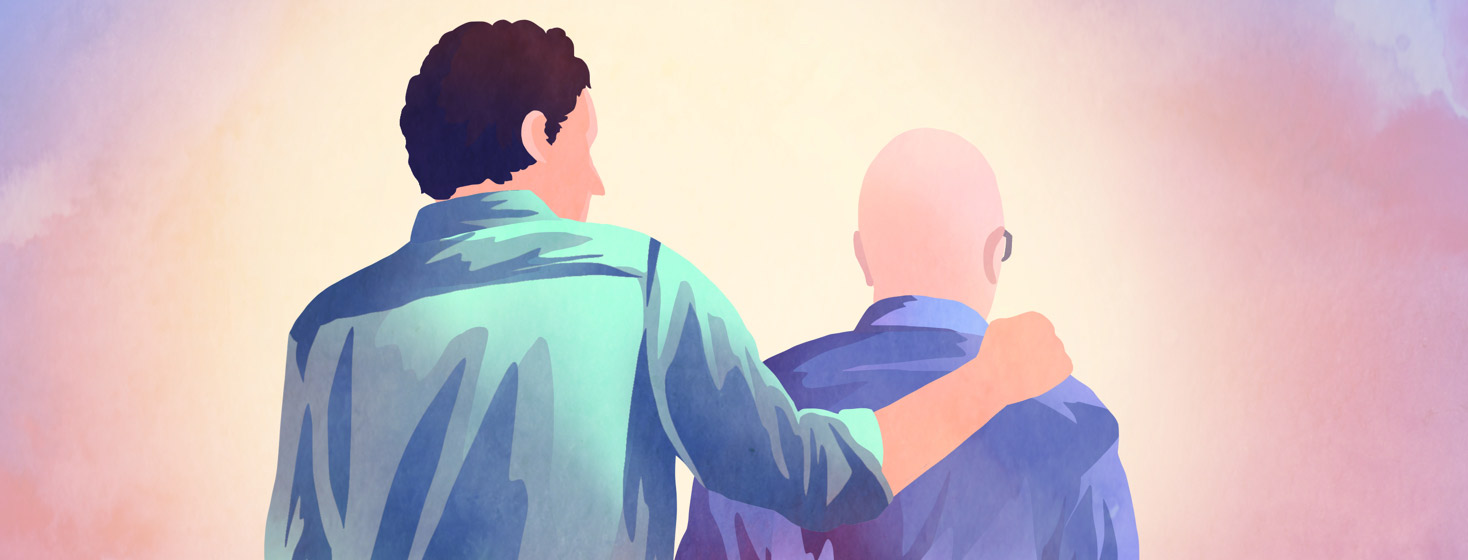How My Father's Bipolar Affected How I Deal with Mine
I was diagnosed with bipolar disorder when I was about 20 years old. It was a challenging diagnosis to get as I was originally misdiagnosed with major depression. It would have been easier had I known about my family history. It turns out my father had also been diagnosed with bipolar disorder.
My father's history
I grew up with a father that was predominantly absent. He spent my young years mostly sleeping or passed out. This is because he was an alcoholic. I learned of his alcoholism when I was 12. That was when he went into a treatment center. When he came out of treatment, his thoughts were, "Yeah, I'm an alcoholic, so what?"
Any sobriety he might have had didn't stick. He chose alcohol over family. Addiction is like that. There was no mention of any other mental illness at any time.
He was diagnosed with bipolar?
Fast forward to when I started seeing a psychiatrist. When asked about my family history, I mentioned addiction, but I knew of nothing else. It wasn’t until years after my own diagnosis that I was on the phone with my father, and he said, "You know, I’ve been diagnosed with bipolar, too."
Um, no, I didn't know that. No one knew that.
It turns out my father had spent almost his entire adult life medicating his bipolar disorder with alcohol, and no one had known.
This affected how I viewed my own diagnosis
This information dramatically impacted how I view bipolar disorder and how I manage it.
Up to 70% of people with bipolar disorder also have a substance use disorder.1
I consider this to be one of the major traps of bipolar disorder. For people with bipolar disorder, it seems like a good idea to medicate it in any way possible. Many people think one of those possible ways is with alcohol or other drugs. I fervently believe this isn't the way.
Addiction and bipolar disorder
People who choose alcohol or another drug eventually learn there are a whole host of other issues that come with that choice. That choice can lead to things like choosing a substance over the people you love and who love you.
I will never be in a position to have to make that choice. I work to ensure that I will never have a drug addiction.
Abstaining from drugs and alcohol
This is not to suggest that I've never had a drink since – I have. However, I acknowledge that abstaining from alcohol and other drugs is the best way to maintain stability as a person with bipolar disorder. It’s also the best way to ensure you don't end up with an addiction.2
When I was younger, I carefully monitored every drink I had, and I simply didn't do drugs. I made sure there was no habit forming. I made sure I would never become addicted. Because even if addiction is partially genetic and common in people with bipolar disorder, it doesn't jump out of the bushes and bite you. You still have to ingest the substances for it to take hold.3
Hereditary bipolar – but he passed down good stuff, too
My father gave me a few things. He gave me an intellect and a drive for learning. He gave me a ridiculous streak of perfectionism. And he gave me an example of who I never want to be. Because while I understand the pull of substances when you have bipolar disorder, I understand the desire to do anything that will make you feel just a tiny bit better.
I also understand that addiction is not a path I want to walk. I don't want to be absent. I don't want to sleep my way through existence. I want to taste what life has to offer.
Because while life can be intensely painful and awful with bipolar disorder, life also has its bright spots, and I'll never be able to fully enjoy them with a drug in my hand.
